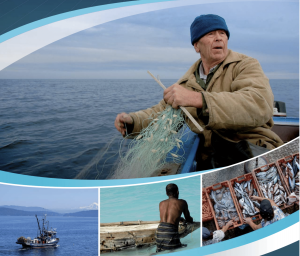Authors
Francisco J. Herrera-Teran
Jaques Berney, IWMC Executive Vice President
Eugène Lapointe, IWMC President
Abstract
The document’s main focus is trade and fisheries resources as exhaustible natural resources. It contains reviews of recent negotiations at the United Nations Food & Agriculture Organization (FAO), United Nations Convention onBiological Diversity (CBD), the World Trade Organization (WTO) and the Convention onInternational Trade in Endangered Species of WildFauna and Flora (CITES) in which a divergence of views has emerged on the respective roles of the different bodies and the legal rights and obligations of the States with respect to various fisheries specific international agreements.
The paper also advocates supporting DevelopingCountries and Small Island nations with assistance on marine resources conservation before they implement free trade or no trade policies. This would also cover adverse impacts to rural communities in Developing Countries and Small Island nations from free trade (resource depletion) or no trade. It assesses how to avoid social impacts on such communities, which traditionally rely on natural resources of the surrounding areas.
With respect to CITES, the paper also includes some information on practical implementation and enforcement issues in the case of listing commercially exploited marine species in Appendix II.
View PDF in English.
View PDF in French.
View PDF in Spanish.


